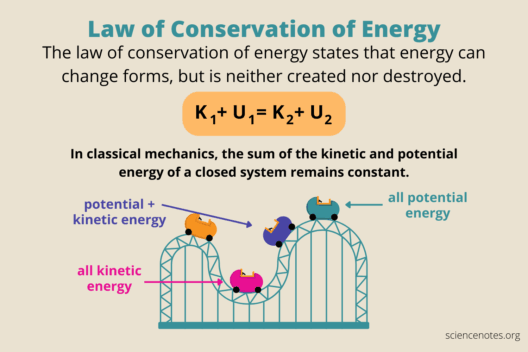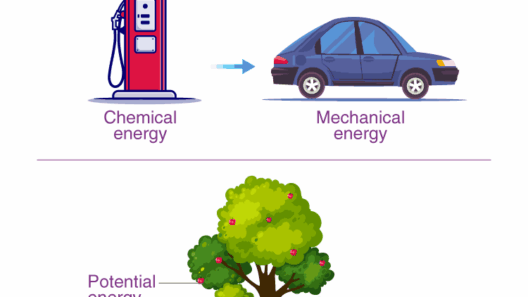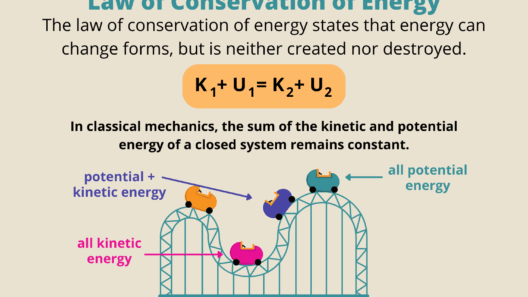Energy conservation is a profound and pressing issue that significantly impacts our planet’s health and our daily lives. At its core, energy conservation involves the careful management and effective use of energy resources to reduce consumption without compromising the quality of life. As a conscious society, it is paramount to recognize the nexus between our energy habits and the escalating consequences of climate change.
In modern society, energy consumption is omnipresent. From the moment we wake up to the sound of an alarm clock to the last flicker of light before bedtime, our daily routines are infused with energy use. This habitual dependence often blinds us to the significance of conservation efforts. Strikingly, the average American household consumes approximately 877 kWh per month. Translating this into carbon emissions, a typical household contributes around 9.5 metric tons of carbon dioxide (CO2) annually—an alarming statistic underscoring the necessity for conservation measures. Such figures compel us to reflect on our behavior and choices surrounding energy usage.
To delve deeper into this phenomenon, one must consider the multifaceted benefits of energy conservation. Primarily, reducing energy consumption not only mitigates greenhouse gas emissions, a catalyst for climate change but also diminishes the demand for energy production. This, in turn, alleviates the strain on our natural resources, enabling their preservation for future generations. The paradox of our fascination with technological advancement lies in its propensity to consume vast amounts of energy; thus, prioritizing conservation presents a compelling counter-narrative.
Household energy conservation can be approached through several pragmatic methods. Simple actions, such as turning off lights in unoccupied rooms, utilizing energy-efficient appliances, or employing programmable thermostats, can collectively yield substantial reductions in energy usage. Switching to LED lighting, for instance, can lower energy consumption by 75% compared to traditional incandescent bulbs. Furthermore, insulation upgrades and sealing drafts can enhance overall energy efficiency, leading to reduced heating and cooling costs.
Statistics reveal the tangible effectiveness of these measures. According to the U.S. Department of Energy, if all U.S. households replaced just one incandescent bulb with an energy-efficient option, the impact would equate to taking nearly one million cars off the road. Consequently, the data illustrates a clear correlation between individual action and broader environmental outcomes. Yet, there remains a compelling labyrinth of factors influencing our propensity to adopt these conservation practices.
Behavioral economics offers insights into the psychology behind energy usage. Cognitive biases, such as the status quo bias—an inclination to favor current behaviors over alternatives—can impede our transition to sustainable practices. Furthermore, the immediate satisfaction derived from energy consumption often overshadows long-term benefits. This dichotomy necessitates a paradigm shift in how we perceive energy use, moving from a utilitarian viewpoint to one that prioritizes sustainability. Educational initiatives and community engagement are essential in reframing our relationship with energy, forging a collective mindset geared towards conservation.
Our fascination with sustainability extends beyond mere statistics and figures; it encapsulates a deeper yearning for connection—with each other, the environment, and future generations. Affinity towards eco-friendly practices not only enhances quality of life but fosters a sense of stewardship over our planet. The urgency of climate change necessitates interdisciplinary collaboration between governments, businesses, and communities, emphasizing the profound symbiosis of collective efforts in energy conservation.
Moreover, technology plays a pivotal role in revolutionizing energy conservation efforts. Smart home technologies, which monitor and automate energy use, are increasingly being adopted. Devices such as smart meters provide real-time data on energy consumption, empowering users to make informed choices that align with their conservation goals. Innovative solutions, such as solar panels and wind turbines, offer sustainable energy alternatives that can significantly lower reliance on fossil fuels, further amplifying the importance of energy conservation.
In addition, the concept of energy conservation extends beyond individual households. On a broader scale, commercial and industrial sectors possess immense potential for energy savings. Implementing energy audits and efficiency upgrades can drastically reduce energy expenditures and carbon footprints. For instance, the U.S. Energy Information Administration reports that commercial buildings, on average, consume about 19% of the total energy used in the United States. This significant consumption underscores the necessity of prioritizing energy-efficient practices across various sectors.
In conclusion, energy conservation is not merely a personal responsibility; it is an imperative for the collective survival of our planet. By understanding the statistics surrounding energy consumption and the profound implications on our environment, individuals can be motivated to change behaviors. The interplay of individual choices, technological advancements, and collective action represents a robust framework for achieving energy efficiency. As we cultivate a culture rooted in sustainability, our collective endeavors will pave the way for a brighter, more resilient future. The simple act of conserving energy becomes a profound testimony to our ability to effect change, rekindling hope in the fight against climate change.








